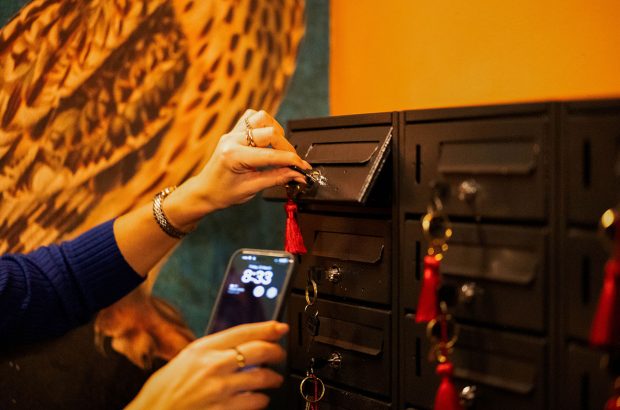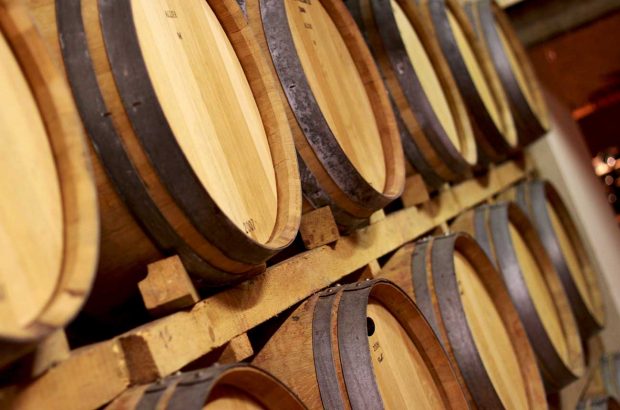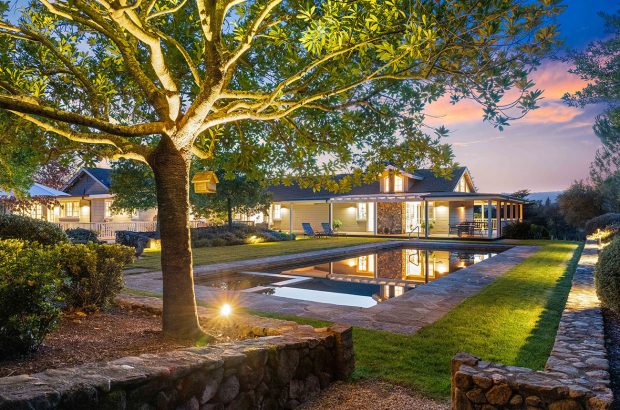Bordeaux 2011 wines on show at last week's Union des Grands Crus de Bordeaux tasting in London received a mixed reception from the assembled audience of top critics and merchants.
Visitors size up the 2011 vintage at the UGC Bordeaux tasting in London. Photo Credit: Sue Glasgow
Bordeaux 2011 is always going to be the come-down vintage, the one that followed those vintages in 2009 and 2010, as many of the chateaux touting their wares at the Royal Opera House Covent Garden last Wednesday acknowledge.
Perhaps it’s just as well that 2011 wasn’t a third consecutive stellar year; who knows what the ensuing excitement would have done to the blood pressure of Bordelais and critics alike?
What came across most of all at the UGC tasting is that the 2011s, now in bottle, are very much a mixed bag.
‘2011 was a difficult vintage for dry wines but not a poor one,’ said Decanter contributing editor Stephen Brook. ‘I was pleasantly surprised by the quality of the vintage, though it’s not uniformly good,’ he told decanter.com after walking the aisles at the UGC tasting.
For some, the beauty of the 2011s is their comparative drinkability at such an early age, an attribute that could plug a gap in the market while the ‘09s and ‘10s meander to maturity.
With yields down significantly in 2013, and 2012 having also proven difficult, some believe Bordeaux lovers may be grateful to have some wines to drink over the coming few years, at more reasonable prices.
‘[2011] won’t be a vintage that ages for the long-term, but that’s fine,’ said Stephen Browett, chairman of Farr Vintners.
Several chateaux representatives at the UGC tasting described the ‘11s as an ‘easy drinking’ vintage. ‘2009 and 2010 were blockbuster years, but this is what Bordeaux is all about,’ said Christian Seely, managing director of the Axa Millesimes group of estates, based at Chateau Pichon-Longueville Baron.
‘Most wines can be approached fairly young, and well before the 2010s, though the best will age quite well,’ Brook said.
Still, it’s going to be harder to take a chance on a 2011 and come out on top. ‘The most consistent wines were from St Emilion, and there were some very good Pomerols, too,’ said Brook.
‘Haut-Medoc and Margaux were patchy – there were some raucous tannins here and there – but there were excellent wines from St Julien and Pauillac. Of course, these are rich estates with the means to select ruthlessly, and it showed.’
Brook also praised the whites from Graves and Sauternes, although several of the latter lacked enough complexity to match the great expectations heaped upon them. They need time to settle, Brook said.
Steven Spurrier, also Decanter contributing editor, was more sceptical of overall quality in 2011. Several of the wines were ‘very green and not ripe’, he said.
Amid the Opera House din, several other tasters criticised an overload of ‘chewy tannins’ on some wines.
Someone always has to follow every great act. Comparisons are natural, but it is important to judge the successors on their own merit.
/* Style Definitions */ table.MsoNormalTable{mso-style-name:”Table Normal”;mso-tstyle-rowband-size:0;mso-tstyle-colband-size:0;mso-style-noshow:yes;mso-style-priority:99;mso-style-parent:””;mso-padding-alt:0cm 5.4pt 0cm 5.4pt;mso-para-margin:0cm;mso-para-margin-bottom:.0001pt;mso-pagination:widow-orphan;font-size:10.0pt;font-family:”Calibri”,”sans-serif”;}Someone has to follow every great act. All one can do is appreciate themfor their own merit.
–>





